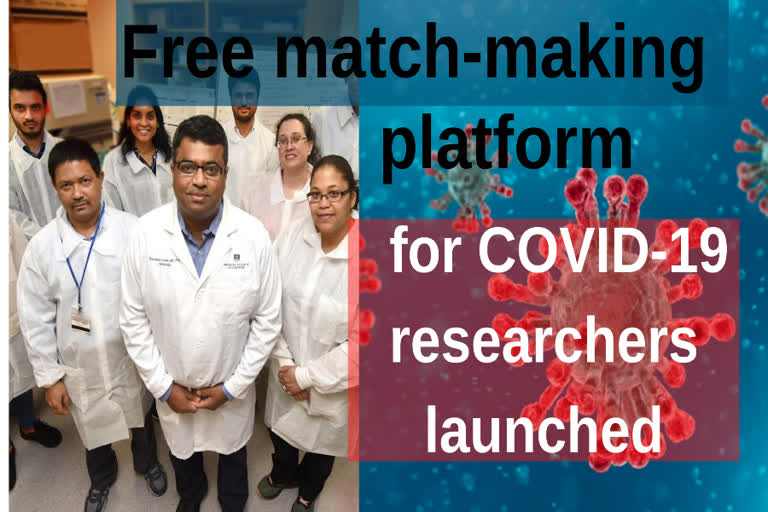In a bid to tackle the new coronavirus pandemic, a free online match-making service has launched to help COVID-19 researchers find one another across the globe, check out funding opportunities and get to work tackling the virus faster.
The UK-based open innovation network Crowdhelix, in partnership with media company ScienceBusiness, introduced the service at network.crowdhelix.com/covid-19 – a simple online tool for COVID-19 researchers, whatever their country or specialty, to connect.
With the Crowdhelix service, researchers can click through to a special COVID-19 section of its custom-built 'Open Innovation' platform.
Also Read: Now go live on Facebook without phone or an account
There, they can profile themselves, their teams, and their organisations and post opportunities to collaborate.
An intelligent recommender system then matches these opportunities with the most suitable prospective collaborators, using natural language processing and machine learning.
"This collaborative initiative is timely and important in tackling the global challenge presented by COVID-19. The pandemic crosses national borders with ease, so it is important for organisations across various countries, sectors, and disciplines to collaborate and share their developing expertise in its diagnosis, prevention, and treatment," said Boörn Kull, Head of Grants Office at Karolinska Institutet in Sweden.
"We hope colleagues from across the world will join the COVID-19 Helix and collaborate on research projects to help tackle this global challenge," Kull said.
The network currently connects researchers and innovators from over 450 organisations spanning 44 countries in disciplines from physics to medicine and beyond. The COVID-19 service is free.
At the same time, they can check up on funding opportunities announced around the world, and the latest COVID-19 research news.
"The COVID-19 pandemic is a global challenge that calls for excellent researchers across the world to respond and collaborate. To defeat the outbreak, strong and efficient cooperation between government, industry, and the research community will be crucial," said Frauke Christ, Innovation Manager, Division of Molecular Medicine, Katholieke Universiteit in Belgium.
Also Read:Google Duo increases group calling limit to 12 participants
(Inputs from IANS)
